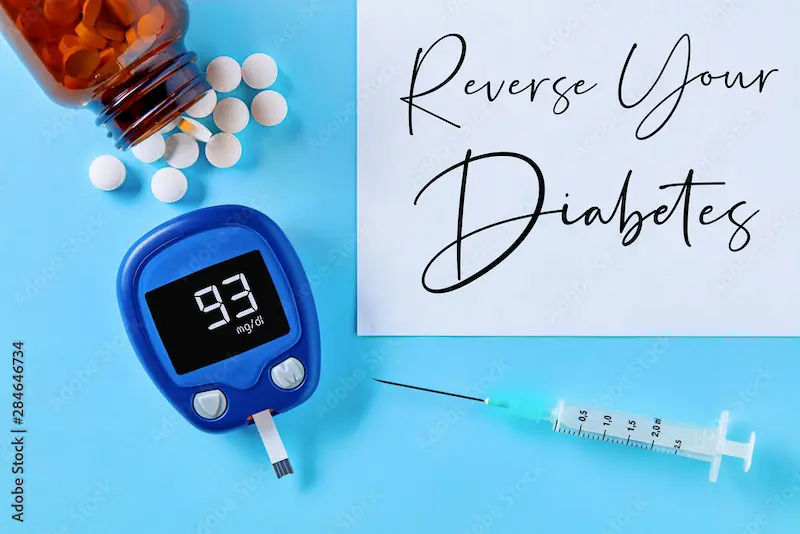Prediabetes: Essential Precautions to Take
Prediabetes is reversible with the right lifestyle changes. Learn essential precautions, healthy diet, exercise, stress management, and more, to prevent type 2 diabetes.

Written by Dr. Vasanthasree Nair
Reviewed by Dr. J T Hema Pratima MBBS, Fellowship in Diabetes Mellitus
Last updated on 13th Jan, 2026

Introduction
Prediabetes is a condition where your blood sugar levels are higher than normal but not high enough to be classified as diabetes. It’s a warning sign that your body isn’t processing sugar (glucose) as efficiently as it should. The good news? With the right precautions, you can prevent or delay the progression of type 2 diabetes.
Understanding Prediabetes
Let’s look into the concept of prediabetes in detail:
What Happens in Prediabetes?
Normally, your pancreas produces insulin, a hormone that helps your cells absorb glucose from the blood for energy. In prediabetes, your cells become resistant to insulin, or your pancreas doesn’t make enough insulin, leading to elevated blood sugar levels.
Symptoms of Prediabetes
Many people with prediabetes don’t experience noticeable symptoms. However, some may notice:
Increased thirst
Frequent urination
Fatigue
Blurred vision
Slow-healing wounds
Since symptoms are often mild, regular blood sugar checks are crucial, especially if you have risk factors.
Who is at Risk?
You may be at higher risk if you:
Are overweight or obese
Have a family history of diabetes
Are over 45 years old
Lead a sedentary lifestyle
Have high blood pressure or cholesterol
Have had gestational diabetes (diabetes during pregnancy)
Why Should You Take Prediabetes Seriously?
If left unmanaged, prediabetes can progress to type 2 diabetes, increasing the risk of:
Heart disease
Stroke
Kidney damage
Nerve damage (neuropathy)
Vision problems
The good news? Prediabetes is reversible with lifestyle changes.
Essential Precautions to Manage Prediabetes
1. Adopt a Healthy Diet
What you eat plays a huge role in managing blood sugar levels.
Foods to Include:
Whole grains (brown rice, quinoa, oats)
Lean proteins (chicken, fish, tofu, beans)
Healthy fats (avocados, nuts, olive oil)
Fibre-rich foods (vegetables, fruits, legumes)
Foods to Limit:
Sugary drinks (soda, fruit juices)
Refined carbs (white bread, pastries)
Processed and fried foods
Excessive sweets
Tip: Opt for smaller, balanced meals throughout the day to keep blood sugar stable.
Get Your Symptoms Checked By An Endocrinologist
2. Stay Active
Exercise helps your body use insulin more effectively. Aim for:
150 minutes of moderate exercise per week (brisk walking, cycling, swimming)
Strength training (2-3 times a week) to build muscle, which improves glucose metabolism
Tip: Start slow, even a 10-minute walk after meals can help lower blood sugar.
3. Lose Excess Weight (If Needed)
Losing just 5-10% of your body weight can significantly reduce diabetes risk. Focus on gradual, sustainable weight loss through diet and exercise.
4. Get Regular Check-ups
Since prediabetes often has no symptoms, regular blood sugar tests are essential. Key tests include:
Fasting Blood Sugar Test
HbA1c Test (measures average blood sugar over 3 months)
Oral Glucose Tolerance Test (OGTT)
If you’re at risk, consult your doctor for screening.
5. Manage Stress and Sleep Well
Stress raises blood sugar by increasing cortisol levels. Try relaxation techniques like yoga, meditation, or deep breathing.
Poor sleep affects insulin sensitivity. Aim for 7-9 hours of quality sleep per night.
6. Quit Smoking and Limit Alcohol
Smoking increases insulin resistance.
Excessive alcohol can cause blood sugar spikes and weight gain.
When to See a Doctor?
If you have risk factors or symptoms of prediabetes, consult a doctor for testing. Early intervention can prevent diabetes and its complications.
Take the Next Step with Apollo 24|7
If you’re concerned about prediabetes, Apollo 24|7 offers:
Expert consultations with endocrinologists
Home blood sugar testing kits
Personalised diet and fitness plans
Conclusion
Prediabetes is a wake-up call, not a life sentence. With simple lifestyle changes, healthy eating, regular exercise, and weight management, you can reverse it and avoid diabetes. Start today, because your health is worth it!
Get Your Symptoms Checked By An Endocrinologist
Get Your Symptoms Checked By An Endocrinologist

Dr. Shrikrishna V Acharya
Endocrinologist
25 Years • MBBS, MD, DM(Endocrinology), MRCP (Endocrinology)
Bengaluru
Apollo Clinic, JP nagar, Bengaluru

Dr. Chaithanya R
Internal Medicine Specialist Diabetologist
16 Years • MBBS, MD Internal Medicine, Fellowship in Diabetes(UK), CCEBDM(PHFI)
Bangalore
Apollo Clinic Bellandur, Bangalore
(75+ Patients)

Dr. Amrutha G
General Physician/ Internal Medicine Specialist
10 Years • MBBS,DNB(family medicine), Diabetologist-CCEBDM,CCGDM
Bengaluru
Apollo Clinic, Sarjapur Road, Bengaluru

Dr. Anand Ravi
General Physician
2 Years • MBBS
Bengaluru
PRESTIGE SHANTHINIKETAN - SOCIETY CLINIC, Bengaluru

Dr. Shruthi B
Endocrinologist
20 Years • MBBS,MD ( GEN MED) DM (ENDOCRIONOLOGY)
Bengaluru
Apollo Clinic, JP nagar, Bengaluru
Get Your Symptoms Checked By An Endocrinologist

Dr. Shrikrishna V Acharya
Endocrinologist
25 Years • MBBS, MD, DM(Endocrinology), MRCP (Endocrinology)
Bengaluru
Apollo Clinic, JP nagar, Bengaluru

Dr. Chaithanya R
Internal Medicine Specialist Diabetologist
16 Years • MBBS, MD Internal Medicine, Fellowship in Diabetes(UK), CCEBDM(PHFI)
Bangalore
Apollo Clinic Bellandur, Bangalore
(75+ Patients)

Dr. Amrutha G
General Physician/ Internal Medicine Specialist
10 Years • MBBS,DNB(family medicine), Diabetologist-CCEBDM,CCGDM
Bengaluru
Apollo Clinic, Sarjapur Road, Bengaluru

Dr. Anand Ravi
General Physician
2 Years • MBBS
Bengaluru
PRESTIGE SHANTHINIKETAN - SOCIETY CLINIC, Bengaluru

Dr. Shruthi B
Endocrinologist
20 Years • MBBS,MD ( GEN MED) DM (ENDOCRIONOLOGY)
Bengaluru
Apollo Clinic, JP nagar, Bengaluru


